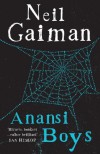William's Book Blog
Mostly book reviews. Very rarely I'll allow William Campbell Powell (author) to write a blog entry on publishing activity, but he's under orders to keep that stuff over on his Facebook page and on http://williamcampbellpowell.com
Currently reading
What's 7 feet tall, green, deadly and hides in bushes?

Well, a triffid, of course. When I encountered them first, aged eleven or so, they had a scariness value of at least a Dalek. The Day of the Triffids is a book I read many times, so that now, listening to the audiobook (well-narrated on the whole by Samuel West), I mostly recollected the text just ahead of the narrator reading it.
(The one complaint re West's narration is the voice of Josella, which came across older and whinier than I liked. Otherwise well paced, well modulated, clear and an all-round delight to listen to.)
For a book originally published in 1951 it's aged reasonably well. I did observe how the unfolding of the apocalypse was so dependent on the precise level of technology. A few years later, and the same catastrophe would have unfolded very differently as different aspects of society became more (or less) centralised. So much - in 1951 - seemed to fail the moment the human hand let go the tiller. Phones, electricity failed instantly. I'm not convinced.
Likewise, the speed with which the human race is whittled down (and tidily removed from the stage by a plague and the triffids) seems more of a plot device to reduce the visible conflict to man versus triffid, than it is a plausible exposition of how a civilisation might fall.
Its strength, I feel, is more in homing in on the moral choices that the characters make and on the nature of each morality, right only in relation to the society of the time. These, more than man-vs-triffid, are the interesting conflicts - the triffids are there simply to carry out sentence on those who fail to update their moral outlook to a new reality.
Once those conflicting moralities have competed one against another, Wyndham is done. He sketches a quick message of hope for the survivors who have adapted, and wraps up the tale in rather hurried fashion.
As a footnote, I was intrigued to discover, as I sat down to write this review, that Simon Clark penned a sequel - The Night of the Triffids - in 2001. Amazon has obliged...
 2
2








